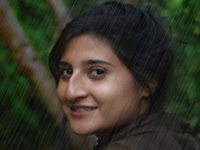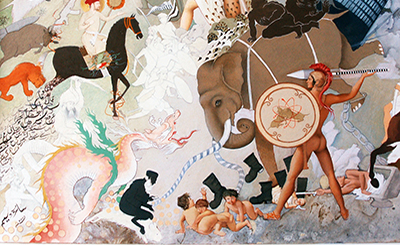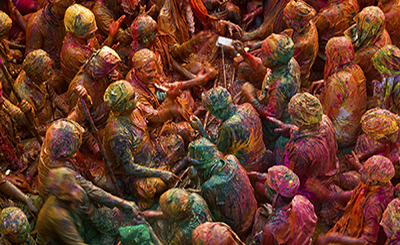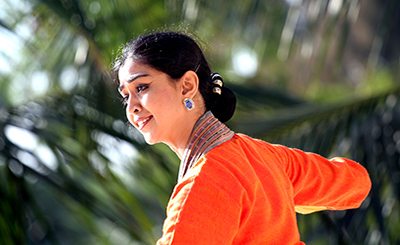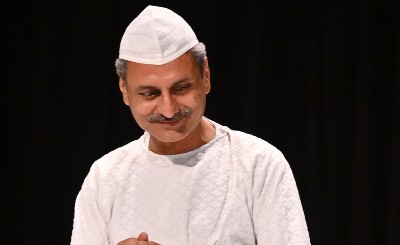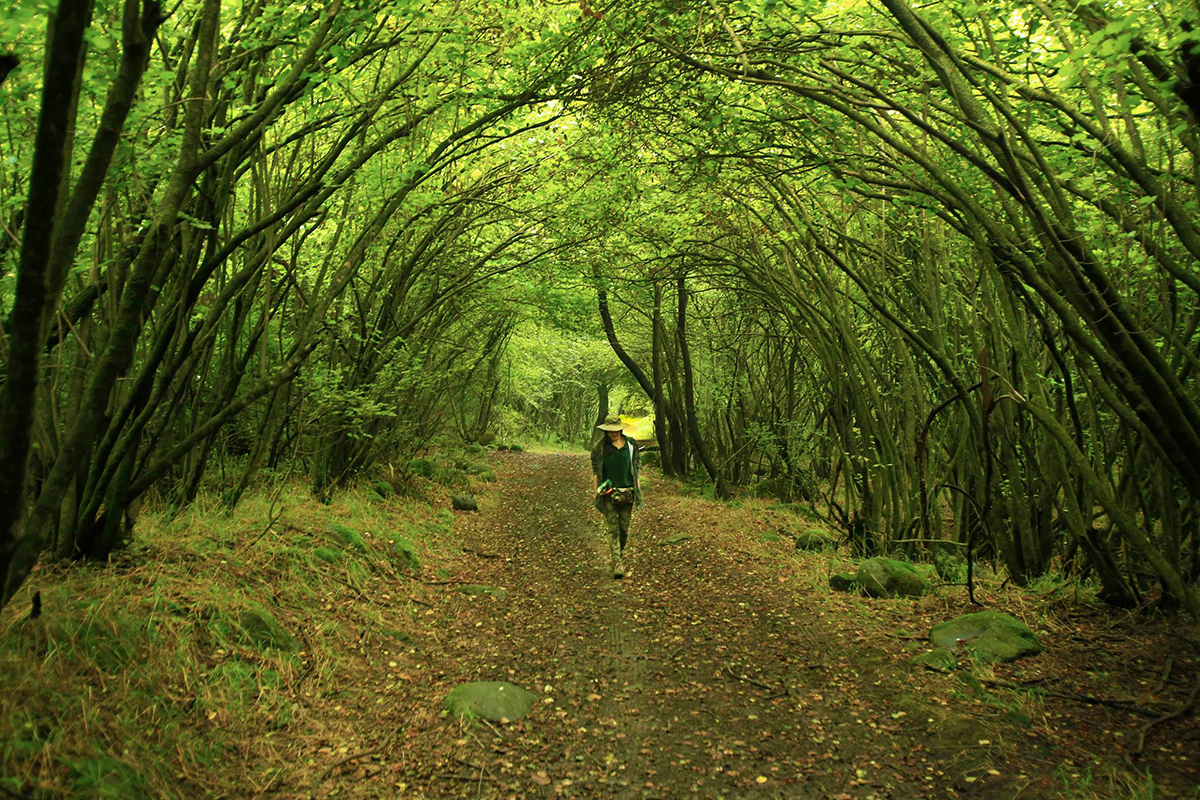
Science communicator and natural history filmmaker Ashwika Kapur.
As the world stops and humanity retreats indoors, I look back at the road I took as a wildlife storyteller. It has let me in on the beauty, perfection and fragility of the world
5:00 am. A new day has dawned clean and fresh after a night of rain and thunder. Half awake, I listen to the last of the night’s rain drops play a quiet tune on my windowpane. The rhythmic sound brings a calmness to the mind, a natural lullaby that makes me want to go right back to sleep. I snuggle a little deeper into my pillow. And just as I can feel the heady pull of my dreams beckoning me again, the quiet of a perfectly peaceful dawn is rudely pierced by a sound so devilishly shrill, it makes me jump right out of my skin and bed.
Meet my unforgiving alarm clock. No, not the digital kind on the side table, but a raucous bird of prey at my window; a wild kite named Lucifer. His calls can shake the dead in their shrouds.
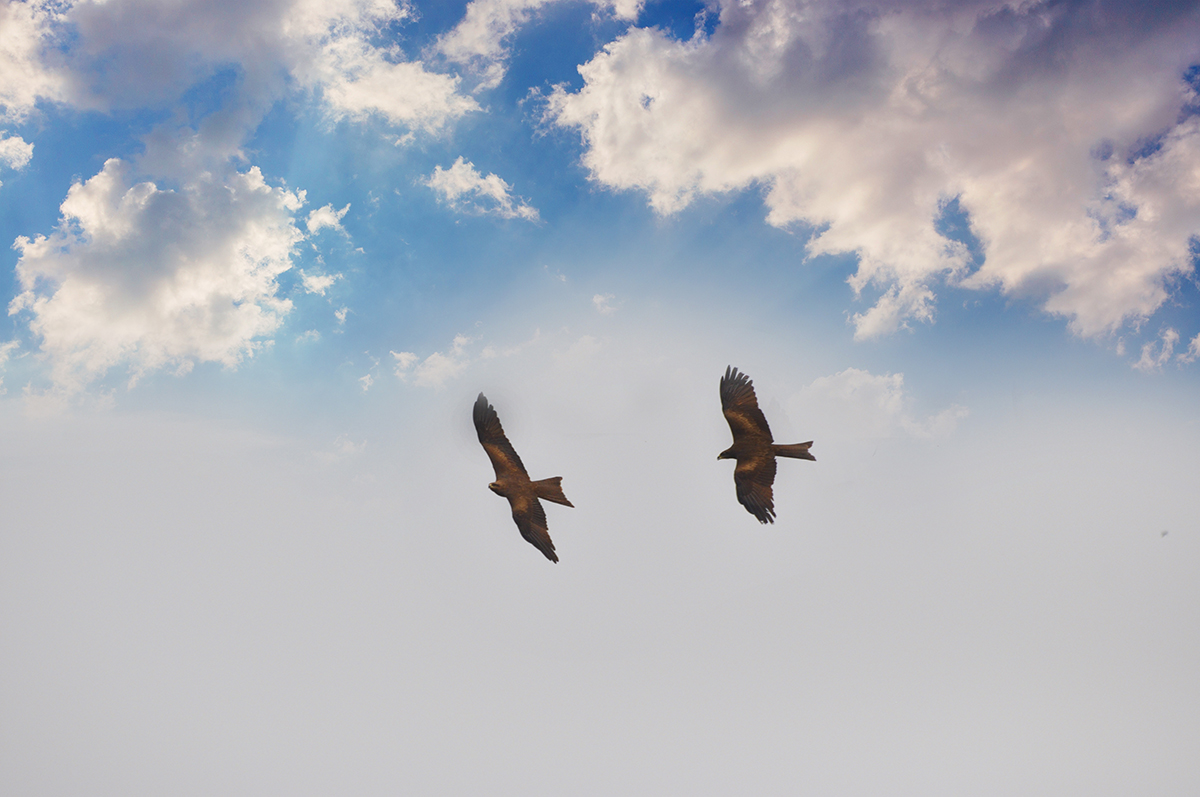
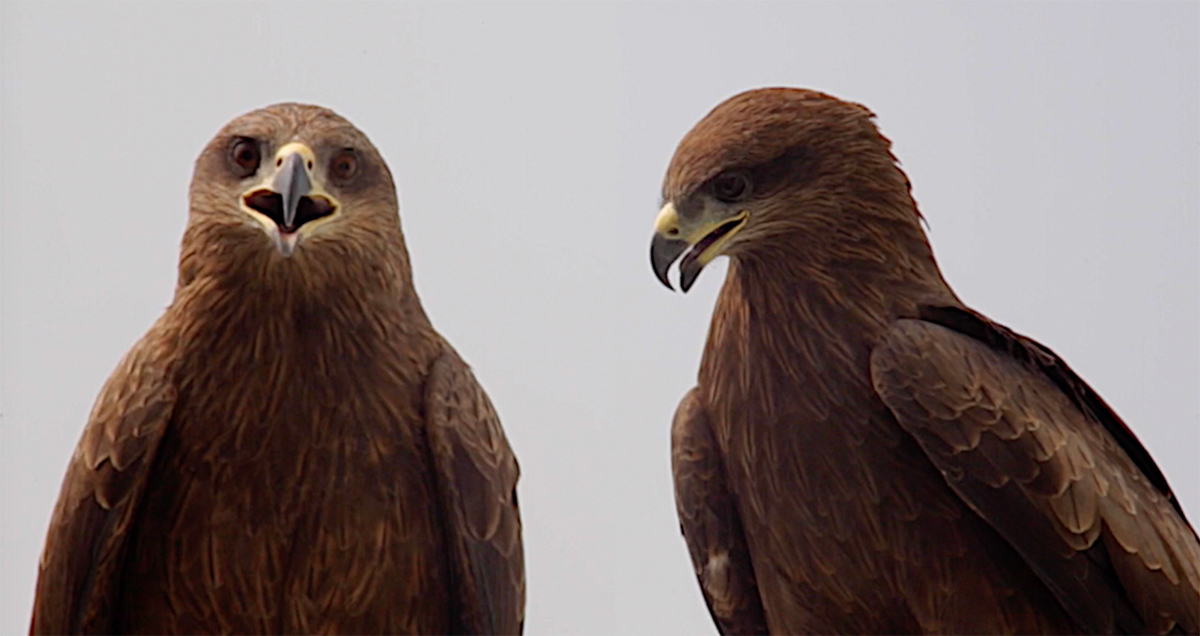
Kites pair for life. Lucifer and Sin are partners forever.
Begrudgingly, I leave the comfort of my bed to say hello to good ol’ Lucifer. He has unfailingly and determinedly sabotaged my morning sleep for many years now. As I part my curtains to the nascent rays of the sun, there, on my balcony, regal and majestic, he sits bathed in golden Byzantine light. And, in a second, my petulance melts into gratitude. Another morning, and this beautiful wild bird has yet again chosen me as his favourite human to visit. He conveys his pleasure to see me with another deafening shriek. “Yes, alright, good morning to you too, Lucifer.”
And so begins my day.
If someone had told me a few months ago that I had to spend 60 days confined in my 12th floor flat in the heart of Calcutta and with no means or hope of escape, just the very thought would have driven me mad. You see, I’m a wildlife filmmaker which means I’ve been on the constant move for the last seven odd years. So I’m not the one to be long in city pent, leave alone pent inside a flat. Jungles, mountains, oceans, grasslands, deserts and everything in between, that’s where I belong and when I’m away I can hear them all calling to me and it is a call I can never resist. That’s the life I’ve chosen. That’s the life that chose me. That’s life on the freewheeling road. And it can lead anywhere. So after all of that, the jungles and mountains and rivers and open road and the wind in my face, well, I have to say, I’ve surprised myself. Far from going stir crazy, I have actually been enjoying this compulsory time-off. It has given me a rare opportunity to reflect on important things. Life. The roads we take. Or don’t. And as I look back, I begin to think about why I chose to be a wildlife storyteller in the first place.
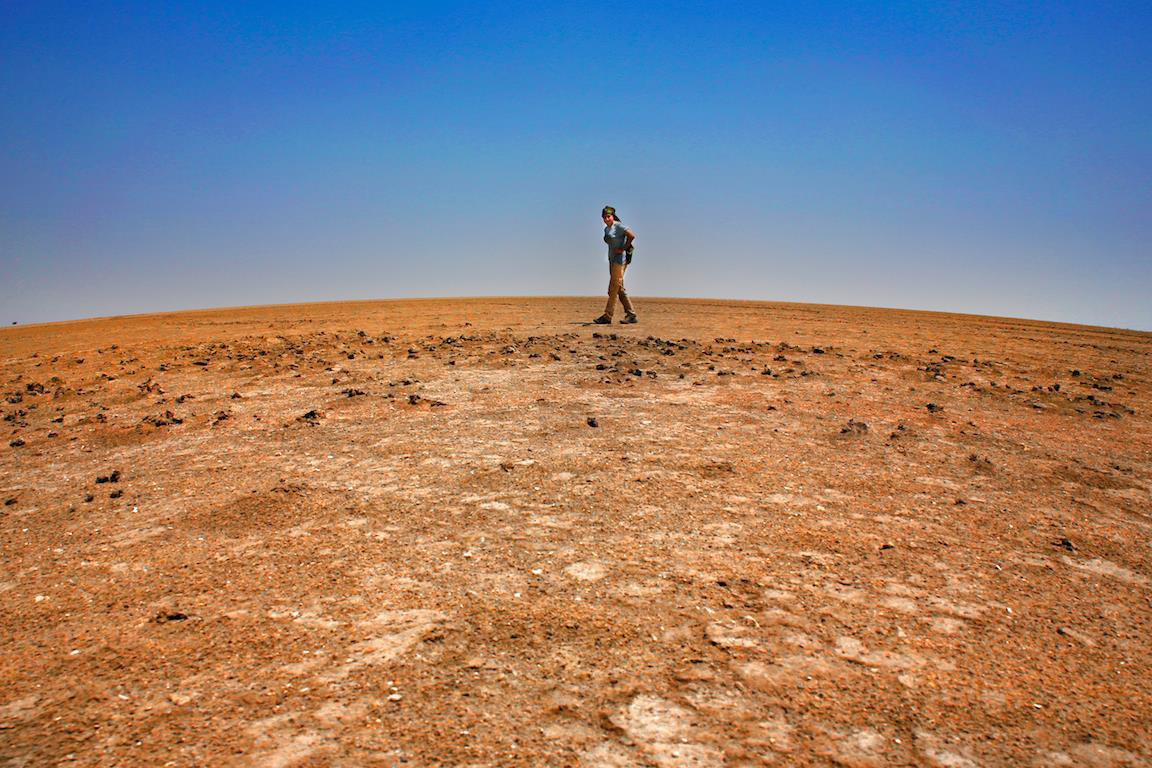
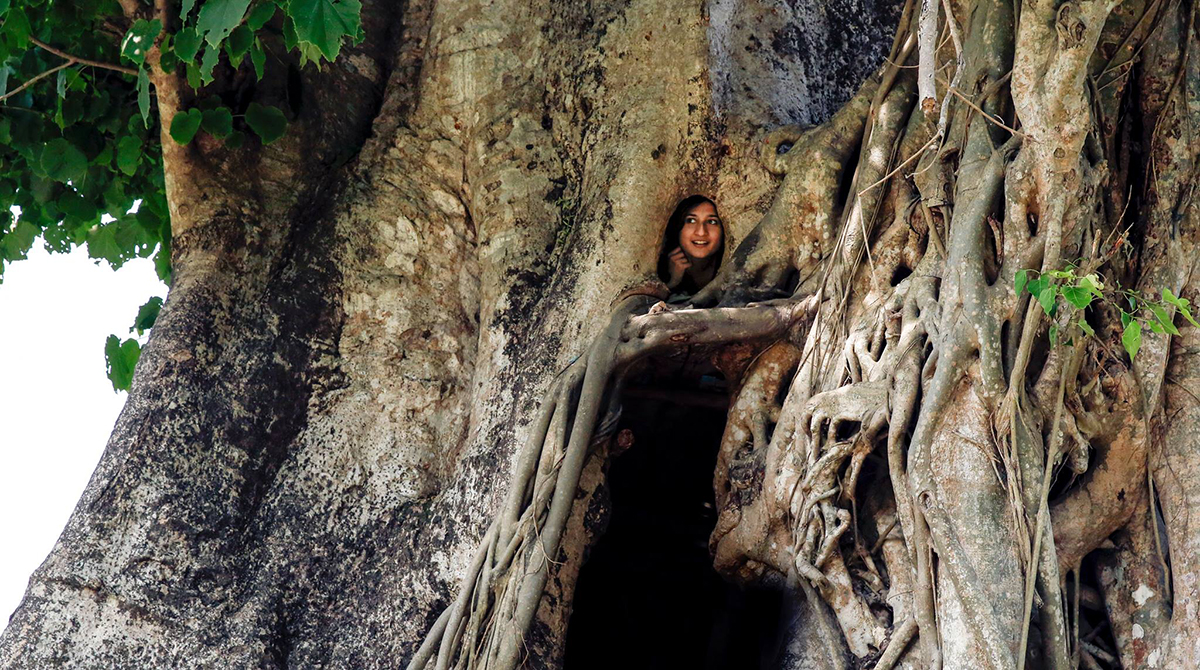 “Jungles, mountains, oceans, grasslands, deserts and everything in between, that’s where I belong and when I’m away I can hear them all calling to me and it is a call I can never resist.”
“Jungles, mountains, oceans, grasslands, deserts and everything in between, that’s where I belong and when I’m away I can hear them all calling to me and it is a call I can never resist.”
I take my freshly made cup of coffee into my balcony. The city below, in the wash of the new light, is both deserted and yet seething with abundance. The grass on a terrace roof of a neighbouring house is a virulent green. The Gulmohar flowers are exploding in a bloom of hectic red. The water in the pond nearby shimmers like diamonds in the sun. But it is the birds that truly steal the show. Parrots, bulbuls, kingfishers, orioles, magpie robins, rufous treepies, sparrows, all ever so busy with their morning rituals, singing in greedy melody beneath a cerulean sky. I take a deep breath. The air is fresh and pure. Is this really the heart of the city? Is this really my Calcutta, waking up to a chorus of birds beneath an achingly blue sky? It is. It actually is.
Because the world has stopped. Humanity has retreated indoors. And in the great outdoors, nature has awoken to resume her unfettered reign. This is truly a time of wonder and magic and marvel, truly a time to praise, value and reconnect with nature, even if it’s only from your 12th floor balcony.
This is also that time of year when Lucifer and his mate, aptly named Sin, are getting ready to build a nest. The two have been gathering twigs and stems to build a cozy bed in the nook of an air-conditioning vent. And they make quite a spectacle of it each morning. When one finds a twig fit for the nest, they’ll fly around the other showing it off, doing a playful little tango in the sky. Kites pair for life. Lucifer and Sin are partners forever. They’ve danced like this every year since I’ve known them and they’ll carry on their dance, year after year, only with each other, till death does them part. As the pair pirouette with their plunders, they don’t have a worry in the world. They are as free as the winds they ride.
My mind wanders to another time in another place to a different kind of bird of prey I once came to deeply appreciate. I was in East Africa then, in the great open savannahs of the Masai Mara, filming a conservation video on vultures. Sure, perhaps there isn’t much to love about a scavenger bird picking at a decaying carcass, but what we fail to recognize is that thanks to our vultures, the ultimate cleaners of nature, disease is kept at bay. And in true character, thanklessly, human beings have decimated their populations with poison and pesticides to the point of near extinction.
One memory triggers another. The sheer madness in the Masai Mara during morning safaris! Hundreds of tourist cameras triggering off like machine guns at the sight of a bunch of slumbering lions. Not much different from the mad flurry every morning and evening at our own Tiger Reserves here in India. How quiet those places must be now. How peaceful must the depths of Ranthambore and Bandhavgarh be without the racket and arrogance of exploitative tourism wrecking the magic and sanctity of the wild.
A white-throated kingfisher interrupts my train of thought. Delicately perched on an antenna, she rattles away in full-throated abandon without the usual sounds of the city to drown her calls. Noise pollution is a whole different ball game for wildlife. My memory dives to the vibrant depths of the Andaman Sea where I filmed last year. Science is only just beginning to understand the incalculable effect noise pollution has on ocean life. So great is the growing din of sea traffic that experts fear it is fundamentally destroying the marine ecosystem, affecting everything from feeding, reproduction, migration and social behaviour of marine life. But I read the other day that during this forced global lockdown, scientists are actually getting the opportunity to study whale songs in the silence of the oceans like never before. How amazing is that! Without the traffic, commercial overfishing has temporarily halted too, and if reports are to be believed, just in a few months fish populations are bouncing back
in record numbers worldwide. Half a chance is all nature needs.
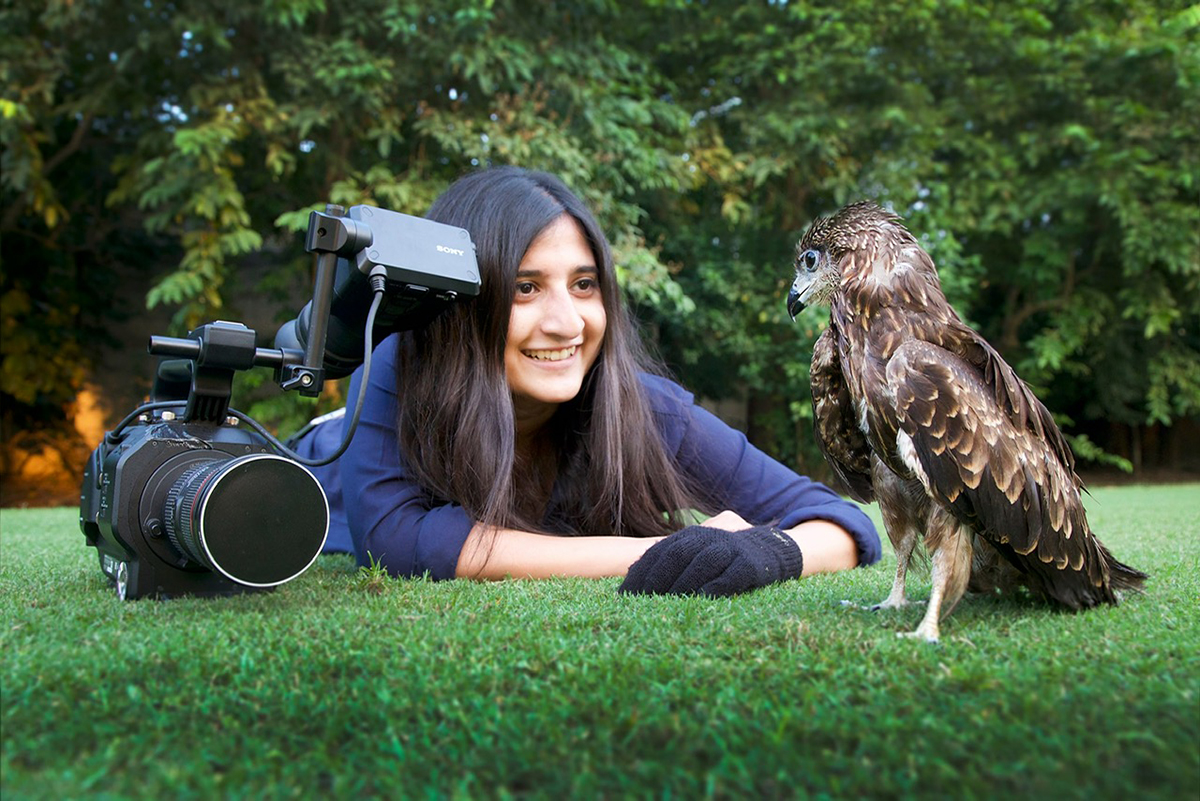
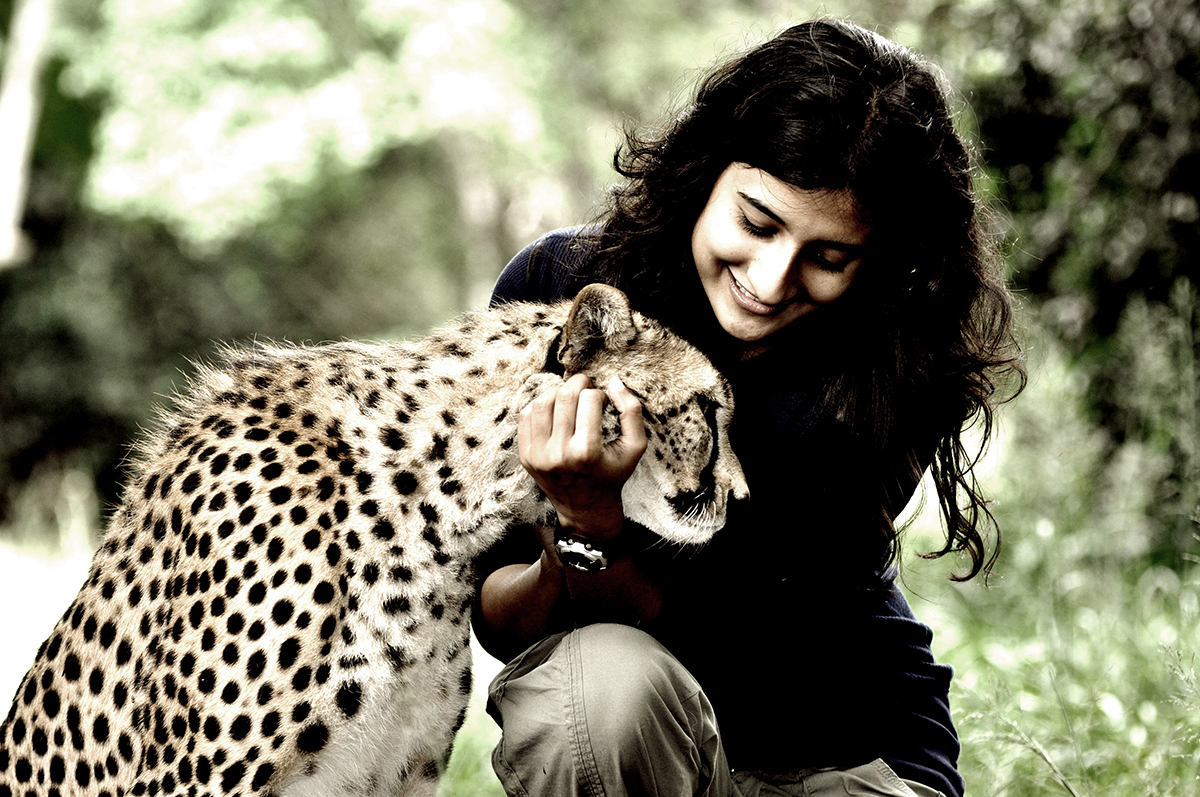
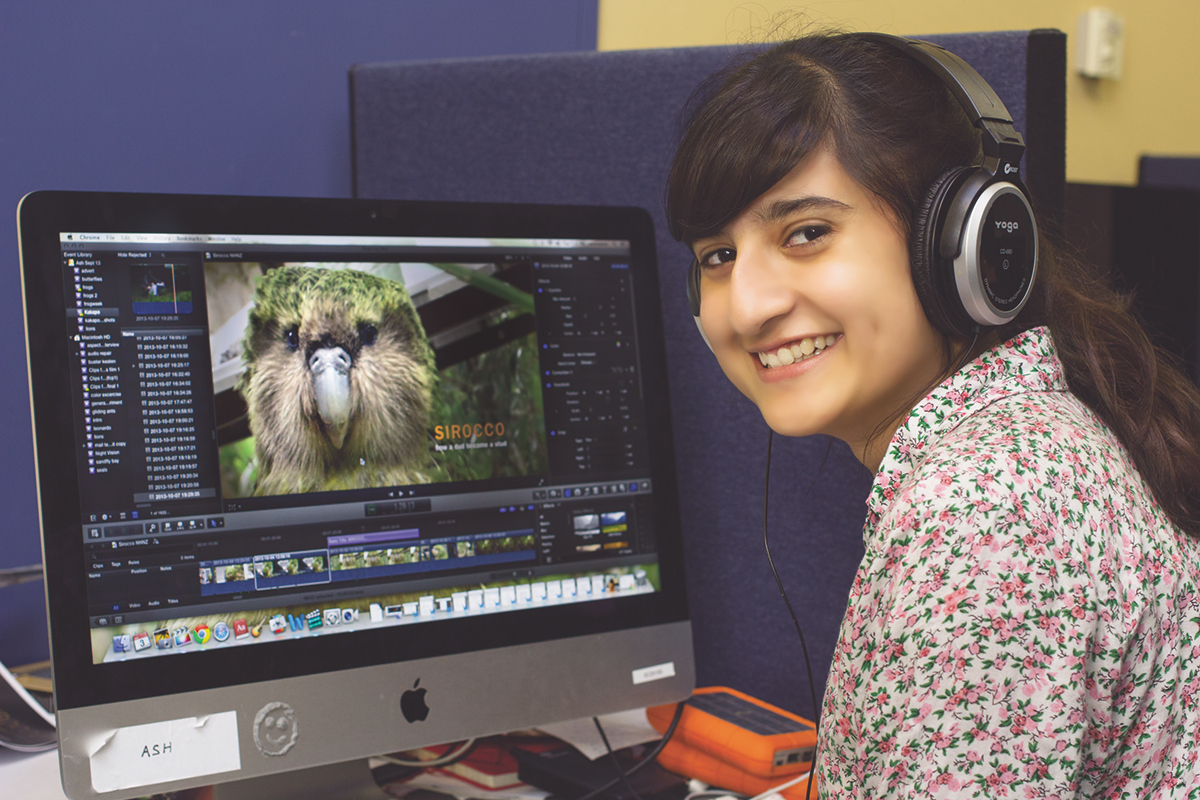 “I chose to be a nature filmmaker not only because it takes me on thrilling travels and adventures, but because I am driven by a compelling responsibility to tell the untold stories of our planet, so that, in turn, I may inspire a passion for nature in others.”
“I chose to be a nature filmmaker not only because it takes me on thrilling travels and adventures, but because I am driven by a compelling responsibility to tell the untold stories of our planet, so that, in turn, I may inspire a passion for nature in others.”
Closer to home, the Ganges, too, must be getting a much-needed break from the constant assault of all kinds of pollution. What a relief it must be for our Gangetic dolphins to finally swim free and safe from the onslaught of garbage and noise and ruthless hunting. Hunting and the illegal wildlife trade is where all this started in any case. The reason I’m sitting here, on my balcony, pondering the fate of the planet is because of the merciless killing and consumption of wildlife in the wet markets of china. It had to boomerang someday, did it not? Well now that nature has put us in detention, locked us up like wicked recalcitrant children, to take time off to think about our actions, I hope we can learn a lesson or two from this experience. So when the inevitable time comes for us to go back to “normal”, when the musings of garden birds and the brave adventures of urban wildlife again concede defeat to the whizzing of cars and a million footfalls at rush hour, we may pause to reflect on how nature thrived in the forced absence of our greed. Indeed, fresh air and starry nights could and should be part of normal life, if only we can be a little bit less indifferent. A little bit less short sighted. If only we can reconsider a future that is sustainable, not self-destructive.
My coffee is done. I retreat indoors to my edit suite. That’s what is keeping me busy these days. I’m editing a film on the Sundarbans. Another one of those great gifts of nature we’ve taken for granted. And so I begin my edit with renewed incentive and purpose. After all, as a science communicator and nature storyteller, it is my job to convert the unconverted. And that’s why I do what I do. I chose to be a nature filmmaker not only because it takes me on thrilling travels and adventures, but because I am driven by a compelling responsibility to tell the untold stories of our planet, so that, in turn, I may inspire a passion for nature in others. So, when I stand before the pearly gates, and the big man in the sky asks me what I’ve done with my life, I can quietly say that I did my little bit for conservation by finding and telling important little stories to change the world in little ways. And that I hoped to inspire others to love and care for this earth of ours so that it wouldn’t have to take a pandemic for us to realise that this world is a precious gift we cannot take for granted. And that’s why I do what I do.
And meanwhile Lucifer is back outside my window looking at me approvingly. I look back at him perched in the light that’s turning from gold to silver. He is so breathtakingly beautiful and regal and majestic. So perfect and so fragile. Just like our world. And that is why I am driven to do my little share for this beautiful earth.
This piece is a part of our special issue on Art in the time of Pandemic, curated by critic, author and one of our contributing editors, Ina Puri
More from Arts
Comments
*Comments will be moderated



